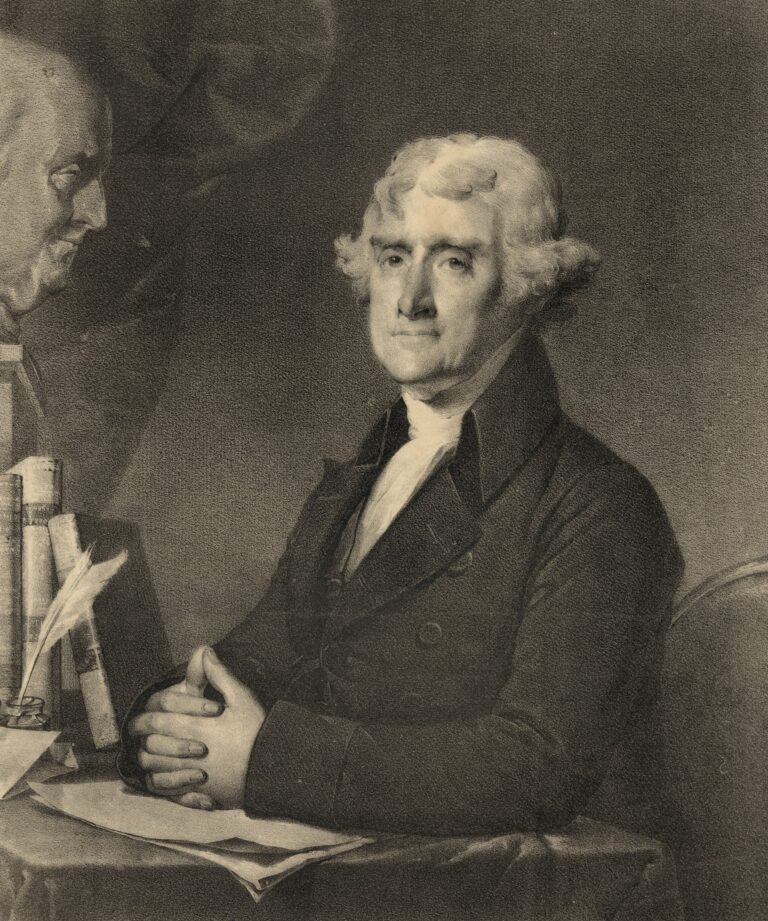Driving Excellence: Unveiling the Leadership Legacy of Henry Ford
 Exploring the Leadership Lessons of Henry Ford: Pioneering the Future
Exploring the Leadership Lessons of Henry Ford: Pioneering the Future
Leadership is an art that evolves over time, drawing inspiration from the remarkable journeys and stories of visionary individuals who have left an indelible mark on the world. Henry Ford, the pioneering industrialist and founder of the Ford Motor Company, stands tall among the pantheon of influential leaders. His innovative approach to manufacturing, groundbreaking assembly line techniques, and unyielding commitment to efficiency revolutionized the automotive industry and shaped the course of modern business practices.
As we navigate the complexities of leadership in the 21st century, it is essential to delve into the experiences of those who have come before us. By studying the lives of historical leaders like Henry Ford, we gain valuable insights and timeless wisdom that can guide our own leadership journeys.
Born on July 30, 1863, in a small farming community in Michigan, Henry Ford exhibited an innate curiosity and an unquenchable thirst for knowledge from a young age. His humble beginnings and limited formal education did not deter him from pursuing his passions. Through a series of transformative experiences and sheer determination, Ford established himself as an extraordinary figure in the automotive industry, forever altering the course of industrialization.
In this comprehensive article, we will explore the captivating narrative of Henry Ford’s leadership journey, examining the lessons he learned and the principles he espoused along the way. From his groundbreaking vision for mass production to his unwavering commitment to innovation, Ford’s leadership philosophy and practical implementation provide a wealth of inspiration and lessons for leaders in any field.
One of Ford’s most enduring legacies is his introduction of the assembly line and the Model T, the first affordable automobile for the masses. This innovation not only revolutionized the way automobiles were manufactured but also had far-reaching implications for the entire manufacturing industry. Ford’s commitment to efficiency and productivity enabled him to produce vehicles at an unprecedented rate, making them accessible to a broader audience and transforming the automotive landscape forever.
But Henry Ford’s leadership prowess extended beyond the realm of business. He recognized the importance of his employees and championed their welfare through his revolutionary $5 workday, a groundbreaking move that significantly elevated wages and improved working conditions for his workers. This people-centric approach not only cultivated a loyal and motivated workforce but also set a new standard for employee welfare in the business world.
Moreover, Ford understood the importance of giving back to the community. His philanthropic endeavors and social impact initiatives reflected his deep-rooted belief in using his success to uplift others. From supporting education and healthcare initiatives to addressing societal issues, Ford demonstrated the profound influence that leaders can have beyond their organizations.
The journey of Henry Ford was not without its challenges. From conflicts with shareholders and struggles during economic downturns to navigating the devastating effects of the Great Depression, Ford faced numerous obstacles along the way. However, it was his resilience, adaptability, and unwavering commitment to his vision that enabled him to overcome these adversities and leave an enduring legacy.
As we delve into the stories and lessons of Henry Ford’s leadership, it becomes apparent that his influence extends far beyond the automotive industry. His approach to leadership, characterized by innovation, efficiency, employee welfare, and community impact, resonates deeply in the contemporary world. The principles he espoused continue to shape management theories and guide leaders in various domains.
Through an exploration of Henry Ford’s remarkable life and career, this article aims to uncover the valuable leadership lessons embedded within his journey. By drawing inspiration from Ford’s experiences, we can cultivate our own leadership capabilities, navigate challenges with resilience, and contribute to a better future for both our organizations and society as a whole.
Join us as we embark on a captivating journey through time, unraveling the wisdom and inspiration that Henry Ford’s leadership provides. Let us discover how his vision, principles, and enduring legacy can guide us in our own pursuit of leadership excellence.
Early Life and Career of Henry Ford
Background and Upbringing
To truly understand Henry Ford’s remarkable leadership journey, we must first delve into his humble beginnings. Born into a farming family on July 30, 1863, in Greenfield Township, Michigan, Ford grew up surrounded by the values of hard work, perseverance, and resourcefulness. His upbringing in a rural community instilled in him a deep appreciation for craftsmanship and practicality, traits that would later shape his approach to manufacturing and entrepreneurship.
Ford’s early life was not without its challenges. His formal education was limited, and he showed little interest in academics. However, his curious nature and mechanical aptitude soon became apparent. Ford displayed an innate talent for tinkering with machines, often disassembling and reassembling them to understand their inner workings.
Early Ventures and Experiences in the Automobile Industry
Ford’s passion for machines led him to seek opportunities in the emerging field of automobiles. In 1891, he became an engineer for the Edison Illuminating Company, where he worked on improving electrical systems. This experience exposed Ford to the cutting-edge technologies of the time and nurtured his appetite for innovation.
In 1896, Ford built his first self-propelled vehicle, the Quadricycle, a rudimentary four-wheeled vehicle powered by a gasoline engine. This invention marked the beginning of his journey in the automobile industry and set the stage for his future accomplishments.
Founding of the Ford Motor Company
In 1903, Henry Ford, along with a group of investors, founded the Ford Motor Company. Their ambitious goal was to manufacture automobiles that were not only reliable and efficient but also affordable for the average person. It was this vision that would drive Ford’s leadership and set him apart from his contemporaries.
Ford’s early leadership at the company was marked by his hands-on approach and unwavering commitment to excellence. He personally oversaw every aspect of the manufacturing process, from design to production, ensuring that the vehicles bearing his name met his high standards.
Innovative Spirit and the Birth of the Model T
One of the defining moments in Ford’s career was the development and introduction of the Model T in 1908. This revolutionary automobile was the culmination of Ford’s relentless pursuit of efficiency and affordability. By implementing assembly line techniques and streamlining production processes, Ford was able to reduce costs and produce the Model T at an unprecedented rate.
The Model T quickly became a symbol of progress and accessibility, capturing the imagination of the public and transforming the automotive industry. Its introduction marked the beginning of a new era, where automobiles were no longer a luxury reserved for the elite but a practical means of transportation for the masses.
Legacy of Innovation and Mass Production
Henry Ford’s impact on the automotive industry extended beyond the success of the Model T. His innovative spirit and commitment to mass production techniques transformed manufacturing practices across industries. By introducing the assembly line, where workers performed specialized tasks with precision and efficiency, Ford revolutionized production processes and significantly increased productivity.
The implementation of the assembly line not only reduced production time but also lowered costs, making products more affordable and accessible. Ford’s manufacturing methods set new benchmarks for efficiency and laid the foundation for modern industrial practices.
Ford’s relentless pursuit of innovation extended to other areas as well. In 1913, he introduced the world’s first moving assembly line, a game-changing innovation that further accelerated production rates. This breakthrough allowed the Model T to be assembled in a fraction of the time previously required, further reducing costs and increasing output.
The impact of Ford’s innovations reverberated throughout the business world. His approach to mass production became a blueprint for manufacturing efficiency and influenced industries far beyond automotive. Ford’s leadership in this domain not only transformed the way goods were produced but also set the stage for economic growth and industrialization on a global scale.
In the next section, we will explore the leadership philosophy and principles that guided Henry Ford’s remarkable journey, shedding light on the core tenets that contributed to his enduring success as a leader.
Leadership Philosophy and Principles
Henry Ford’s leadership journey was guided by a clear vision, unwavering principles, and a distinctive philosophy that set him apart as a trailblazer in the business world. Examining his leadership philosophy and principles provides invaluable insights into the mindset and approaches that fueled his success. Let us explore the key aspects of Ford’s leadership philosophy:
Ford’s Vision for Mass Production and the Assembly Line
Central to Ford’s leadership philosophy was his vision for mass production and the implementation of the assembly line. He recognized that efficiency and productivity were paramount in meeting the growing demand for automobiles. By streamlining production processes and breaking down complex tasks into smaller, specialized operations, Ford was able to optimize efficiency and dramatically increase output.
The assembly line allowed Ford to achieve unprecedented levels of productivity, reducing the time required to manufacture a vehicle from days to hours. This revolutionary approach not only revolutionized the automotive industry but also set the stage for the mass production of a wide range of products, transforming manufacturing practices across industries.
Emphasis on Efficiency and Productivity
Efficiency and productivity were at the core of Ford’s leadership philosophy. He believed in eliminating waste, streamlining processes, and maximizing output. Ford constantly sought ways to improve efficiency, employing scientific management principles and meticulous attention to detail.
His relentless pursuit of efficiency extended beyond the production line. Ford analyzed every aspect of the business, from supply chain management to sales and distribution, identifying opportunities for improvement and cost reduction. This focus on efficiency allowed Ford to lower costs and offer affordable automobiles to a broader consumer base.
Commitment to Innovation and Continuous Improvement
Innovation was a driving force in Ford’s leadership philosophy. He understood that to stay ahead of the competition and meet the evolving needs of customers, continuous improvement and innovation were crucial. Ford’s relentless pursuit of technological advancements led to numerous breakthroughs in automotive engineering and manufacturing processes.
He fostered a culture of innovation within the Ford Motor Company, encouraging employees to think creatively, challenge conventions, and explore new possibilities. Ford’s own tinkering and experimentation with automobile designs were legendary, often pushing the boundaries of what was considered possible at the time.
People-Centric Approach and Employee Welfare Initiatives
Despite his reputation as a tough and demanding leader, Henry Ford believed in the importance of valuing and investing in his employees. He recognized that a motivated and engaged workforce was essential for the success of his business.
One of Ford’s notable initiatives was the introduction of the $5 workday in 1914, a significant departure from prevailing industry practices. This move not only doubled the average wage for workers but also reduced turnover, improved productivity, and attracted talented individuals to the company. Ford understood that fair compensation and providing a decent standard of living for his employees fostered loyalty, commitment, and a sense of belonging.
Beyond fair wages, Ford also implemented other employee welfare initiatives, such as the establishment of Ford Sociological Department to address workers’ social needs and the introduction of a profit-sharing program. These initiatives reflected Ford’s belief that a successful business should contribute to the well-being of its employees and the community at large.
Ford’s people-centric approach and emphasis on employee welfare were not just acts of philanthropy but also strategic decisions that paid dividends in terms of employee satisfaction, productivity, and loyalty.
In the following section, we will explore the transformative impact of Henry Ford’s leadership through some of his notable achievements, such as the Model T and his social impact initiatives, shedding light on how his leadership philosophy translated into tangible outcomes that shaped the business landscape and society as a whole.
Transformational Leadership in Action
Henry Ford’s leadership journey was characterized by transformative actions and groundbreaking initiatives that left an indelible impact on both the business world and society at large. In this section, we will explore some of Ford’s notable achievements and initiatives, highlighting his ability to drive change and create lasting value.
The Model T: Revolutionizing the Automobile Industry
One cannot discuss Henry Ford’s leadership without mentioning the iconic Model T, the vehicle that revolutionized the automobile industry and propelled Ford Motor Company to new heights of success. The Model T, introduced in 1908, was the culmination of Ford’s vision for an affordable, reliable, and efficient automobile for the masses.
By leveraging his expertise in mass production and implementing innovative manufacturing processes, Ford was able to produce the Model T at an unprecedented scale and reduce its price significantly. The Model T quickly became a symbol of progress and accessibility, empowering individuals and transforming transportation worldwide.
The impact of the Model T went beyond the automobile industry. It fostered economic growth, created job opportunities, and spurred the development of ancillary industries such as road infrastructure, fuel stations, and auto repair services. Ford’s leadership and the success of the Model T had a ripple effect that transformed societies and shaped the modern world.
The $5 Workday: A Radical Move towards Fair Wages
One of the most remarkable aspects of Henry Ford’s leadership was his recognition of the importance of fair wages and employee welfare. In 1914, Ford shocked the business world by implementing the $5 workday for his employees. This move, which more than doubled the average industrial wage at the time, was a testament to Ford’s commitment to his workers’ well-being.
The $5 workday had a profound impact on employee morale, loyalty, and productivity. It attracted talented individuals to the Ford Motor Company, reducing turnover and fostering a sense of pride and ownership among the workforce. Ford understood that by providing a decent standard of living for his employees, he was creating a virtuous cycle of productivity, customer satisfaction, and long-term business success.
Social Impact and Ford’s Community Initiatives
Henry Ford’s leadership extended beyond the realm of business, as he recognized the importance of giving back to the community. He believed that successful leaders had a responsibility to contribute positively to society. Ford’s philanthropic endeavors and community initiatives reflected his commitment to social impact.
One notable example of Ford’s community initiatives was the establishment of the Ford Sociological Department in 1913. This department focused on addressing the social needs of workers, providing support in areas such as healthcare, education, and housing. Ford understood that taking care of his employees and their families not only improved their quality of life but also created a more stable and harmonious work environment.
Additionally, Ford actively supported education and research through initiatives such as the establishment of the Edison Institute (now known as The Henry Ford) and the Ford Foundation. These initiatives aimed to foster innovation, preserve history, and support educational opportunities for future generations.
Influence on Modern Management Practices
Henry Ford’s leadership approach and accomplishments continue to reverberate through modern management practices. His emphasis on efficiency, mass production, and continuous improvement laid the foundation for lean manufacturing principles and paved the way for the development of just-in-time manufacturing methods.
The assembly line techniques pioneered by Ford have become fundamental to industrial processes across a wide range of sectors. His focus on streamlining operations, eliminating waste, and optimizing productivity set new standards for efficiency and paved the way for the industrialization and automation of countless industries.
Ford’s people-centric approach and employee welfare initiatives also influenced modern human resources practices. His recognition of the importance of fair wages, employee engagement, and work-life balance set a precedent for organizations to prioritize the well-being and development of their workforce.
Furthermore, Ford’s emphasis on innovation, adaptability, and visionary leadership serves as a guiding light for leaders navigating the rapidly changing business landscape of the 21st century. His ability to challenge conventions, anticipate customer needs, and drive transformation serves as an inspiration for leaders seeking to foster innovation and stay ahead of the curve.
In the next section, we will explore the challenges and obstacles that Henry Ford faced throughout his leadership journey, examining the lessons learned from these experiences and his remarkable ability to overcome adversity.
Overcoming Challenges and Lessons Learned
The journey of Henry Ford was not without its share of challenges and obstacles. Throughout his leadership tenure, he encountered numerous setbacks, faced conflicts, and navigated through tumultuous times. However, it was Ford’s resilience, adaptability, and ability to learn from these experiences that truly set him apart as a remarkable leader. In this section, we will explore some of the key challenges Ford encountered and the valuable lessons he derived from them.
Conflict with Shareholders and the Battle for Control
As the Ford Motor Company grew in prominence and success, it faced internal struggles and conflicts. One significant challenge Ford encountered was the conflict with shareholders and the battle for control of the company. Dissatisfied with Ford’s insistence on reinvesting profits into research and development rather than distributing dividends, shareholders sought to exert greater influence over the company’s operations.
This conflict culminated in a legal battle that tested Ford’s leadership resolve. Ultimately, Ford emerged victorious, retaining control and reaffirming his commitment to his long-term vision. From this experience, Ford learned the importance of maintaining strategic control over his company and staying true to his principles, even in the face of opposition.
Struggles During Economic Downturns and Competition
Henry Ford’s leadership was put to the test during periods of economic downturns and fierce competition. The Ford Motor Company faced significant challenges, including the recession of 1907, the impact of World War I, and the subsequent post-war economic slowdown. These periods presented obstacles such as reduced demand, financial constraints, and intense competition from other automakers.
During these challenging times, Ford demonstrated his resilience and adaptability. He implemented cost-cutting measures, streamlined operations, and focused on innovation to stay ahead of the competition. Ford’s ability to weather these storms and emerge stronger showcased his strategic acumen and his capacity to navigate turbulent economic landscapes.
Ford’s Response to the Great Depression
One of the most testing periods in Ford’s leadership tenure was the onset of the Great Depression in the 1930s. The automotive industry was severely impacted by the economic downturn, leading to declining sales and widespread financial hardships. Ford, like many other businesses, faced the daunting task of surviving the economic crisis and maintaining operations.
Ford’s response to the Great Depression reflected his compassionate leadership and commitment to his employees. Despite the financial strain, he resisted massive layoffs, opting instead to reduce work hours and salaries while maintaining employment. This decision, though challenging, demonstrated Ford’s genuine concern for his workforce and a commitment to their welfare during difficult times.
Lessons on Adaptability and Resilience
Through these challenges, Henry Ford learned valuable lessons about adaptability and resilience. He recognized the importance of embracing change, both in terms of market dynamics and internal operations. Ford’s ability to adapt his manufacturing processes, respond to economic downturns, and make difficult decisions showcased his flexibility and foresight.
Moreover, Ford understood the significance of resilience in the face of adversity. He remained steadfast in his commitment to his vision, even when confronted with setbacks and opposition. Ford’s ability to bounce back from challenges, learn from failures, and chart a new course exemplified his resilience as a leader.
The lessons derived from these experiences are timeless. Leaders today can draw inspiration from Ford’s ability to navigate through turbulent times, adapt to changing circumstances, and emerge stronger from adversity. By embracing resilience, flexibility, and a long-term vision, leaders can guide their organizations through challenges and position them for sustained success.
In the final section of this article, we will examine the enduring legacy of Henry Ford and the lasting impact of his leadership on the automotive industry, manufacturing practices, and the broader field of leadership.
Legacy and Lasting Impact
Henry Ford’s leadership legacy extends far beyond his lifetime, leaving an indelible impact on the automotive industry, manufacturing practices, and the field of leadership itself. In this section, we will explore the enduring legacy of Henry Ford and the lasting impact of his visionary leadership.
Enduring Success of the Ford Motor Company
One of the clearest indicators of Henry Ford’s leadership prowess is the enduring success of the Ford Motor Company. Under his guidance, the company grew from a modest venture to become one of the most influential and successful automotive manufacturers in the world. Ford’s innovative approach to manufacturing, commitment to efficiency, and ability to anticipate and meet customer needs were instrumental in the company’s long-term success.
Today, the Ford Motor Company continues to be a major player in the automotive industry, building upon the legacy and values established by Henry Ford. The company’s commitment to innovation, sustainability, and customer-centricity can be traced back to Ford’s leadership philosophy.
Contributions to the Industrial Revolution and Manufacturing Practices
Henry Ford’s contributions to the industrial revolution and manufacturing practices cannot be overstated. His pioneering use of the assembly line and mass production techniques revolutionized manufacturing, making it more efficient, cost-effective, and scalable. The impact of Ford’s innovations extended beyond the automotive industry, shaping manufacturing practices in various sectors.
Ford’s emphasis on efficiency, waste reduction, and continuous improvement set the stage for the development of lean manufacturing principles. The concepts of just-in-time production, standardized processes, and continuous flow owe their roots to Ford’s innovative manufacturing methods. His visionary leadership transformed the way goods were produced, setting new benchmarks for productivity and efficiency.
Ford’s Influence on Leadership Theories and Practices
Henry Ford’s leadership journey and accomplishments have had a profound impact on the field of leadership. His innovative approach, people-centric philosophy, and ability to inspire and motivate others serve as a source of inspiration for leaders across industries.
Ford’s emphasis on vision, innovation, and strategic control resonates with modern leadership theories. His ability to drive change and embrace technological advancements aligns with the principles of transformational leadership. Ford’s focus on employee welfare, fair wages, and community impact reflects the importance of ethical leadership and corporate social responsibility.
Moreover, Ford’s leadership legacy has been studied and analyzed by scholars and practitioners, contributing to the development of leadership models and practices. His experiences and principles continue to shape leadership development programs and provide valuable lessons for aspiring and experienced leaders alike.
Relevance of Ford’s Leadership Lessons in the Contemporary World
Despite the passage of time, the leadership lessons derived from Henry Ford’s journey remain relevant in the contemporary world. Ford’s relentless pursuit of efficiency, innovation, and customer-centricity serves as a reminder of the importance of adapting to evolving market demands and anticipating future trends.
His people-centric approach, commitment to employee welfare, and community impact highlight the significance of responsible leadership and stakeholder engagement. Ford’s ability to navigate through challenges, embrace change, and maintain a long-term vision provides valuable guidance for leaders facing the complexities and uncertainties of the modern business landscape.
Furthermore, Ford’s focus on continuous improvement and the pursuit of excellence resonates with the concept of lifelong learning and the need for leaders to continuously adapt, innovate, and enhance their skills and knowledge.
By studying the leadership lessons and stories of Henry Ford, leaders today can gain valuable insights into effective leadership practices, strategic decision-making, and creating lasting value for both their organizations and society as a whole.
Henry Ford’s remarkable journey as a leader exemplifies the transformative power of visionary leadership, innovation, and a people-centric approach. His impact on the automotive industry, manufacturing practices, and the field of leadership continues to reverberate today. By embracing the lessons learned from his leadership philosophy and experiences, we can inspire future generations of leaders to drive positive change, shape industries, and leave a lasting legacy of their own.
Embracing Ford’s Leadership Legacy: Shaping a Visionary Future
The leadership journey of Henry Ford serves as a timeless source of inspiration and wisdom for leaders in the contemporary world. Through his vision, innovations, and commitment to his employees and community, Ford redefined the possibilities of leadership and left an enduring impact on the automotive industry, manufacturing practices, and the field of leadership itself.
Ford’s emphasis on mass production and the implementation of the assembly line revolutionized manufacturing, setting new benchmarks for efficiency and productivity. His people-centric approach, exemplified by initiatives such as the $5 workday and employee welfare programs, demonstrated the importance of valuing and investing in employees as a means to drive success and foster a positive work culture.
The Model T, Ford’s iconic creation, not only transformed the automobile industry but also reshaped societies, making personal transportation accessible to the masses. Ford’s ability to anticipate and meet the evolving needs of customers through continuous innovation and adaptation showcased his visionary leadership.
The challenges Ford faced, such as conflicts with shareholders and economic downturns, provided valuable lessons on strategic decision-making, resilience, and adaptability. Ford’s ability to navigate through adversity while remaining steadfast in his long-term vision exemplified his leadership acumen and determination.
Henry Ford’s impact extends beyond his own lifetime. His contributions to the industrial revolution and manufacturing practices set the foundation for lean manufacturing principles and continue to shape modern production processes. His people-centric approach and focus on social impact highlight the importance of responsible leadership and stakeholder engagement.
Furthermore, Ford’s influence on leadership theories and practices underscores the enduring relevance of his principles. His experiences and achievements have been studied and analyzed, contributing to the development of leadership models and inspiring generations of leaders.
As we reflect on the leadership lessons and stories of Henry Ford, it becomes evident that his legacy is more than a historical account; it is a blueprint for leadership excellence. Ford’s emphasis on innovation, efficiency, employee welfare, and community impact provides a guiding framework for leaders seeking to create sustainable organizations, drive positive change, and leave a lasting legacy.
In our rapidly evolving world, where technological advancements, market disruptions, and societal challenges abound, the leadership lessons from Henry Ford offer valuable insights and inspiration. By embracing Ford’s vision, principles, and approach to leadership, we can cultivate our own leadership capabilities, navigate challenges with resilience, and contribute to a better future for both our organizations and society as a whole.
In the spirit of Henry Ford’s relentless pursuit of excellence and innovation, let us embark on our own leadership journeys, drawing inspiration from his remarkable legacy. May we strive to make a meaningful impact, embrace change, and lead with integrity, always mindful of the lessons learned from one of history’s most influential leaders.





